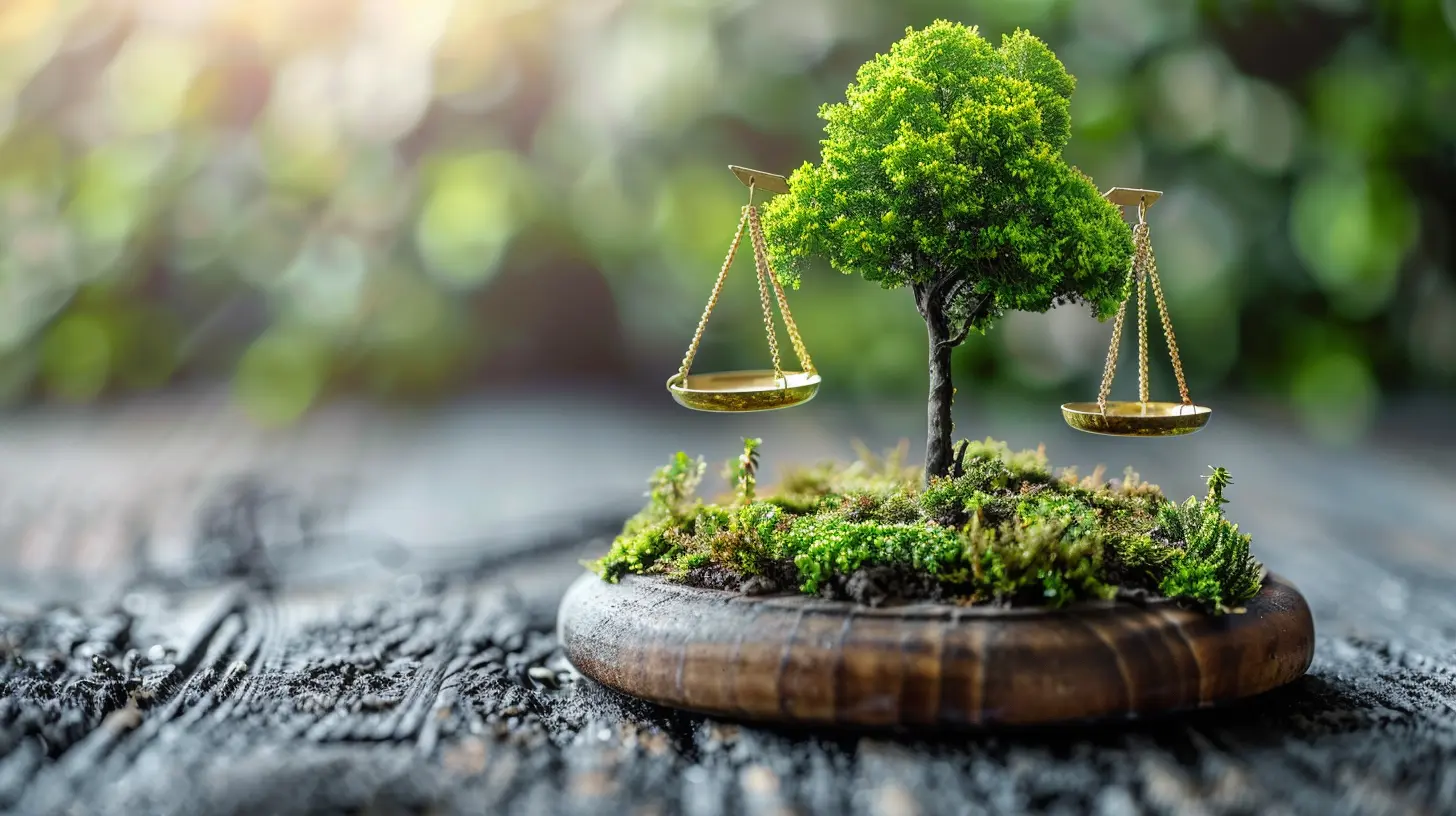The Legal Landscape for Sustainability: What Businesses Must Consider
10 September 2025
Let’s face it: sustainability isn’t just a trendy buzzword anymore. In today’s business world, it’s becoming a non-negotiable part of how companies operate. Between mounting consumer pressure, investor expectations, and government regulations, businesses can no longer afford to treat sustainability as a “nice to have.” But here’s where things get a bit complicated — the legal side of sustainability is evolving fast, and keeping up is a challenge.
So, what exactly does the legal landscape for sustainability look like in 2024 and beyond? And how can businesses make sure they’re not only compliant but ahead of the curve? Let’s dive into it.
Why Sustainability Is Now a Legal Issue — Not Just an Ethical One
Not long ago, sustainability was viewed as more of a PR move. Companies would slap a green label on their products, announce a carbon-neutral goal for 2050, and call it a day. But those days? Long gone.Now, there are actual rules, mandates, and reporting requirements — with real consequences for those who don’t play by them.
Governments across the globe are tightening the screws. From carbon reporting rules in the EU to supply chain transparency laws in the U.S. and UK, regulators are saying: if you want to operate here, you better show us receipts.
So, whether you’re a startup or a multinational, ignoring sustainability laws isn’t just dangerous — it could land you in court, hurt your brand, or cost you major contracts.
Environmental Laws Are Shaping Corporate Strategy
You may not be in the energy or manufacturing industry, but environmental laws can still touch your business. Hard.Emissions Regulation
Let’s start with carbon emissions. Governments worldwide are setting mandatory caps or requiring detailed disclosures of emissions data. The EU’s Corporate Sustainability Reporting Directive (CSRD), for example, requires thousands of European and non-European companies to provide environmental performance data — or face penalties.And don’t forget the U.S. Securities and Exchange Commission (SEC) is moving toward requiring public companies to disclose climate-related financial risks.
Translation? Every business needs to track its carbon footprint. If you’re not measuring, you’re not managing. And if you’re not managing, you could be in legal trouble.
Waste and Resource Management Laws
Think tossing trash is just a janitorial issue? Think again. More jurisdictions now require companies to disclose how they handle waste, reduce plastic, and improve recycling.Extended Producer Responsibility (EPR) laws are growing too. These require businesses to take responsibility for the entire lifecycle of their products — including disposal. Imagine having to pay for where your product ends up after a customer’s done with it!
Supply Chain Transparency — No More Hiding Behind Vendors
Here’s a tough pill to swallow: your legal risk might not just come from what you do — but from what your suppliers do.Human Rights and Labor Standards
Take the UK Modern Slavery Act and the German Supply Chain Due Diligence Act. These require companies to ensure human rights are upheld throughout their supply chains. That means no child labor, forced labor, or unsafe working conditions — or you’re on the hook.The laws call for real oversight. We're talking supply chain audits, human rights impact assessments, and continuous monitoring. “We didn’t know” is no longer an acceptable excuse.
Environmental Accountability Beyond Borders
It’s not just about people — it’s about how raw materials are sourced. Are your suppliers using deforestation-free materials? Are they emitting illegal pollution? You could be forced to prove it — or face consequences at home.Businesses need detailed sourcing documentation, not just invoices and shipping records. This transparency is becoming a legal expectation, not just a moral one.
Greenwashing Can Get You Sued — Literally
Are you marketing your brand as “eco-friendly” or “sustainable”? Awesome. But… can you prove it?Greenwashing — the act of making misleading or unsubstantiated environmental claims — isn’t just bad PR; it’s a legal liability.
Watchdog Crackdowns
Regulatory watchdogs are calling out and fining companies for making vague or false sustainability claims. In the U.S., the Federal Trade Commission (FTC) has ramped up enforcement of its Green Guides, which prohibit deceptive environmental marketing.In Europe, the EU Green Claims Directive demands that any claim of "green" or “eco” must be backed up by scientific, verifiable evidence.
If you say you’re carbon neutral? You better have the carbon credits — and documentation — to back it up.
Lawsuits from Consumers and Competitors
Did you know consumers and competitors can sue for greenwashing? Yep — it’s happening more and more.One wrong label can mean thousands (or millions) in fines, lost customers, or class-action lawsuits.
Bottom line: If you’re going to make sustainability claims, make sure they’re legit. Hire legal and environmental experts to verify your statements before slapping them on your ads or packaging.
The Rise of ESG Reporting Obligations
Let’s talk about ESG — Environmental, Social, and Governance. It’s more than just the latest corporate acronym. ESG is now a legal reporting requirement in many parts of the world.Mandatory Disclosure Is Spreading
The EU CSRD, the U.S. SEC’s proposed climate risk rules, Canada’s forthcoming ESG regulations — they all require companies to report how they impact the environment and society.That includes data on:
- Carbon emissions
- Climate risks and mitigation plans
- Diversity, equity, and inclusion
- Executive compensation
- Corporate governance policies
And here’s the kicker — this data can’t be fluff. It must be third-party verified, standardized, and structured. That means spreadsheets, audits, and plenty of legal oversight.
Investors Are Watching Closely
Investors are leaning hard into ESG. If you want access to capital markets, you’ll need to prove you're sustainable — not just say it.Companies that ignore ESG could find themselves cut off from funding or investment partnerships. So yeah, it matters.
Data Privacy and Sustainability Tech
Yep, we’re going there. Did you know that using sustainability tech — like smart meters or AI-driven supply chain software — could create data privacy risks?Collecting Data Means Following Privacy Laws
If your biz is tracking energy usage, employee transit habits, or supply chain analytics using personal or semi-personal data, you may be subject to privacy laws.Think GDPR in Europe or California’s CPRA. Both have stiff rules on what data you can collect, store, and share. Mess up, and you're looking at fines — and reputational damage.
Combine Sustainability and Cybersecurity
In other words, your sustainability department needs to talk to your IT and legal teams. Like yesterday. Having sustainability data is great — until it causes problems you didn't see coming.Employment Law and the Green Workforce
Sustainability is also changing how companies hire, manage, and compensate workers.Green Job Classifications
Governments are starting to define and incentivize what qualifies as “green jobs.” If you’re hiring roles like environmental analysts or sustainability officers, you might need to comply with specific hiring criteria, wage standards, or reporting guidelines.Employee Engagement and Training
More laws are on the way requiring climate literacy and sustainability training — especially in Europe. If you don’t train your workforce on your company’s sustainability policies, you could be seen as negligent.It’s not just about hiring green — it’s about building a culture of green.
Litigation Risk: When Sustainability Failures Land You in Court
Let’s say you ignore all the above stuff. You don’t report emissions. You overlook your suppliers. You exaggerate your eco-labels.What happens next?
Real-World Lawsuits
You could be sued. By regulators. By shareholders. Even by citizens.For example:
- A clothing brand gets hit with a class-action lawsuit for falsely advertising its products as “recycled.”
- A food company is fined for sourcing palm oil from illegal deforestation.
- A tech company gets investigated for underreporting its emissions in SEC filings.
The lawsuits are coming from all angles. And if your sustainability efforts aren’t buttoned up legally, you’re a sitting duck.
So What Should Businesses Do?
Good question. Here’s what smart businesses are doing to stay ahead of sustainability laws:1. Build Cross-Functional Compliance Teams
Legal, sustainability, finance, HR — they all need to work together. Isolated departments just won’t cut it anymore.2. Invest in ESG Reporting Technology
You’ll need reliable systems to track, verify, and report data. Think of it as QuickBooks, but for your carbon footprint.3. Conduct Regular Legal Audits
Don’t wait for a lawsuit. Proactively review your practices to see where you might be falling short on sustainability laws.4. Train Your People
From the boardroom to the loading dock, everyone should understand your company’s sustainability obligations. Make training a priority.5. Vet Your Partners
If your suppliers mess up, you could pay for it. Conduct due diligence. Demand certifications. Monitor continuously.Final Thoughts: Sustainability Law Isn’t Optional Anymore
We’re in a new era. Sustainability isn’t just about looking good for customers or scoring brownie points with investors. It’s about staying legally compliant, financially afloat, and culturally relevant.The laws are getting stricter. The audits are becoming more detailed. The penalties are getting steeper.
But here's the good news: if you treat these challenges as opportunities, you’ll set your business apart. Companies that get sustainability right — from both a legal and operational standpoint — aren’t just avoiding risk. They’re building future-proof brands.
So don’t just check the box. Own it. The legal landscape is shifting, and it’s time to walk the green line with purpose and clarity.
all images in this post were generated using AI tools
Category:
SustainabilityAuthor:

Rosa Gilbert
Discussion
rate this article
1 comments
Adria Lee
Great insights on navigating the legal landscape for sustainability! This article offers valuable guidance for businesses looking to thrive while protecting our planet.
September 11, 2025 at 4:30 AM

Rosa Gilbert
Thank you! I'm glad you found the insights helpful for businesses aiming to balance success with sustainability.


